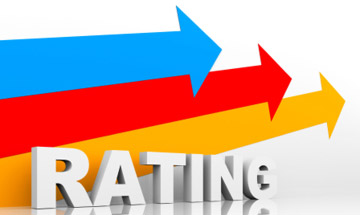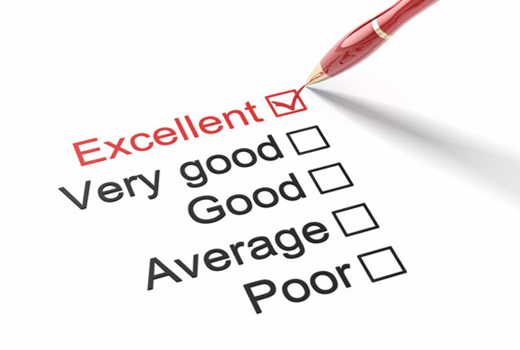The Reputation Economy: Creating a Sustainable Business Strategy
In 1987 the Brundtland Commission Report defined sustainable development for the environment as “development that meets the needs of the present without compromising the ability of future generations to meet their own needs.” Can that same definition be used to define a sustainable business strategy – “development (company growth) that meets the needs of the present without compromising the ability of future generations (company stakeholders) to meet their own needs (return on investment)?” I think so.
To succeed as a business, an organization needs customers to buy and to recommend its products. It needs regulators to provide the license to operate and financial analysts to recommend its stock. A business also needs media to report its success stories. And, it needs employees to deliver on strategy. Achieve these and executives not only build a solid company reputation but also create a sustainable business.
The big question is: How do senior executives get stakeholders to take these supportive actions? It is simple. They need to trust company decision-makers and the company as a whole to meet their expectations and to deliver on its promises to them. This sounds simple, but it is not because company promises may be far reaching and, most likely, difficult to keep. For instance, maybe company executives have promised to create products that never break down or don’t adversely impact the environment. Or, maybe they promised to treat their employees great while pledging high stock dividends to shareholders. In other words, keeping one’s word in a business environment is not so simple. But, that is what reputation is all about – walking the talk . . . If company executives get it right, the results are a sustainable business.
Reputation is the emotional connection between people and companies. It can be quantified and measured by the level of trust, admiration, respect and good feeling stakeholders have for an organization. Companies with strong reputations achieve this emotional connection. And, they see an increased support from their key stakeholders. Few companies, however, understand what their reputation truly means. Even fewer understand how to implement their reputation as a business driver and, hence, leverage it to create a sustainable business strategy.
Reputation Matters
More than 80 percent of business leaders across 350 of the world’s largest companies agree that they compete in a reputation economy. Less than one-half of them feel they are positioned to leverage their own company’s reputation. They highlight three key challenges:
- Fifty-one percent say their reputation is not fully integrated into their business, and it is still viewed as an “add-on” with no structured approach to how and if it is leveraged;
- Thirty-seven percent say they are not making the best use of their existing knowledge. They do not need more research; rather, they are looking for ways to use the information they already have to create trust and support;
- Thirty-five percent see a lack of internal alignment across departments as limiting the impact and efficiency of reputation investments.

© iStockphoto.com/Palto
These challenges are real and impactful because they block companies from getting the full value of their reputation. If a company is perceived as having a weak reputation, only 16 percent of consumers say they would definitely buy its products or services. For companies with average reputations, that number grows to 41 percent. However, if a company has an excellent reputation, fully 64 percent of consumers said they would definitely buy. Therefore, the value of a good reputation is clear.
The flipside is if a company is unable to sell its products or grow its business because of a poor reputation. It has no sustainable or, for that matter, foreseeable business future. When applying Brundtland’s definition to defining a sustainable business strategy, it becomes obvious why managing an organization’s reputation is so important. A sustainable business strategy starts and stops with reputation. If executives can manage their company’s reputation and the drivers that influence it effectively, they can build a successful and sustainable business strategy.
According to Reputation Institute (RI) modeling, if a company improves its reputation by five points based on the RI reputation scale, the number of people who will definitely recommend the company goes up by 7.1 percent. How much additional revenue would a company be able to generate if it could increase the willingness of consumers to buy its products by 10 percent?
If one looks at the market throughout a six-year period, companies with good reputations outperformed the market average in terms of share price by approximately 40 percent. These same companies also boasted superior performance in terms of financial metrics, such as Return on Equity, Return on Assets, Price/Earnings ratio, Market/Book ratio and EBITDA.
Who You are Matters More than What You Sell
In today’s reputation economy, the two main factors people consider before they decide to buy are what you sell and who you are – i.e., the products and company that stand behind those products. Of the two, who you are is, by far, the most important. Fully 60 percent of the public’s willingness to buy, recommend, work for or invest in a company is driven by their perceptions of who a company is and what they stand for. Only 40 percent is driven by what a company sells and how innovative they are.
People expect a business to offer high-quality products at a good price. In most cases the differences between products are minimal. What makes the difference – what inspires people to choose one company over another (the competitor) – is who you are. The latter is where stakeholders look toward to see if they want to provide support. Sadly, many companies are still not communicating these vital reputation dimensions. Stuck in the old, tired model of only trying to sell their product’s features and benefits, they lack tools to unlock the profit-generating power of their reputation.
This is none more apparent than in global companies. The majority of international companies make the huge mistake of not exporting their reputation abroad along with their products. This is in spite of the fact that, for most multinationals, 60-95 percent of their revenue comes from foreign markets. If who you are matters more than what you sell, then exporting a company’s reputation should be just as important, if not more so, than exporting its products. To make matters worse, consider the following:
- Global companies have a 5-22 percent weaker reputation in foreign markets, and
- Stakeholders show a 41 percent lower willingness to recommend companies in foreign markets.

© iStockphoto.com/Palto
So, aside from the importance of telling the company story in relation to its product, business executives are also fighting an uphill battle against their export market’s prejudice towards their company. It is imperative that companies tell their story in foreign markets. Regardless of where their customer lives, they still want to know who is behind the product. In other words, what is the company’s history? Who is running it, and what is its vision?
Integrating Reputation Management
Making business decisions based on how they affect a company’s reputation may sound radical, but for many businesses, that is exactly what they now do. The decision not to use a particular vendor or to buy raw goods from a supplier because of the way it conducts its business may affect a company in the short term. But, remember, it is the company’s reputation that is at stake. When business executives make decisions based on their company’s reputation, they are building a sustainable business.
Nowadays consumers are looking behind product brands to examine the company that provides them. They want to know about sourcing and ingredients, carbon emissions and how workers are treated in a company’s supply chain and facilities. And, they can readily obtain that information from the internet, blogs and social media (whether accurate or not). Winners are rewarded with stakeholder confidence and purchases. Those guilty of lapses and misdeeds are punished.
Reputation Institute recently released a study on the world’s Top 100 companies’ Corporate Social Responsibility (CSR) perceptions. The highest ranked company and overall winner of the study was Microsoft. The win marked an extraordinary journey for the U.S.-based software powerhouse. This is especially true when one considers that not too long ago Microsoft was being referred to as “the evil empire.” For years Microsoft had a very difficult time shedding its reputation as a greedy, monopolistic corporate behemoth. Both the U.S. Department of Justice and European Commission found the company in violation of antitrust laws in the late 1990s and early 2000s. While litigation ghosts may not have necessarily been forgotten, Microsoft has obviously made tremendous strides in improving its reputation.
The company’s emotional appeal has been enhanced by its commitment to environmental initiatives and charitable causes, buttressed, no doubt, by the unprecedented philanthropic efforts of its founder Bill Gates. What has the rise in stakeholder support meant to Microsoft’s bottom line? In 2012 Microsoft reported revenue of $73.7 billion, an increase of $3.76 billion from the previous year. Reputation matters.
Microsoft’s Dan Bross, senior director of Corporate Citizenship, explains: “Positive revenue growth is clearly a factor of many things, most significantly our product strategy and our ability to deliver great technology solutions to the market. But it’s also true that consumers are more likely to engage with companies and brands they respect and trust. The bottom line is that we enhanced our commitment to accountability, strong corporate governance and transparency.”
Sounds like a sustainable business strategy, doesn’t it?
Getting Started
So where do business executives start if they want to lead their company on a reputation journey to a sustainable future? They start with the business case. Where is the money? And then they work their way to an actionable plan they can execute on – in communications and engagement – with stakeholders.
Below are four steps to drive value from reputation:
- Identify the value each stakeholder gives the company and what they expect from the company;
- Develop a clear reputation platform from which to communicate;
- Create cross-functional integration and accountability across departments, and
- Implement reputation into actions and communications towards stakeholders.
The tools required to get started on this reputation journey are there for the taking, and the results are clear. Reputation means money and much more. It means a sustainable business future. If company executives use reputation as the foundation for a sustainable business strategy then they are listening to their stakeholders. They are delivering on expectations, and stakeholders will trust and support them for it.
Remember Brundtland’s definition of sustainability, which is “development that meets the needs of the present without compromising the ability of future generations to meet their own needs.” A sustainable business strategy starts and ends with reputation. So, build a system to protect and leverage it when making tough business decisions, and watch the company grow in value both in the short and long term.






























